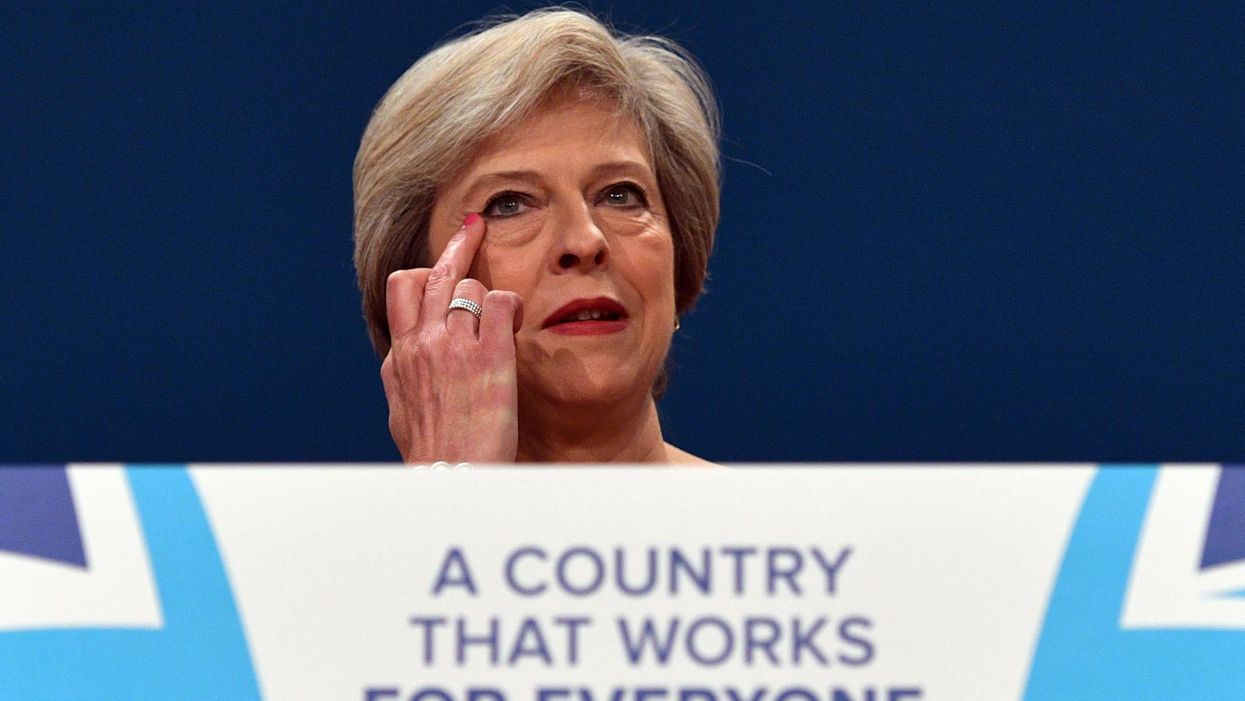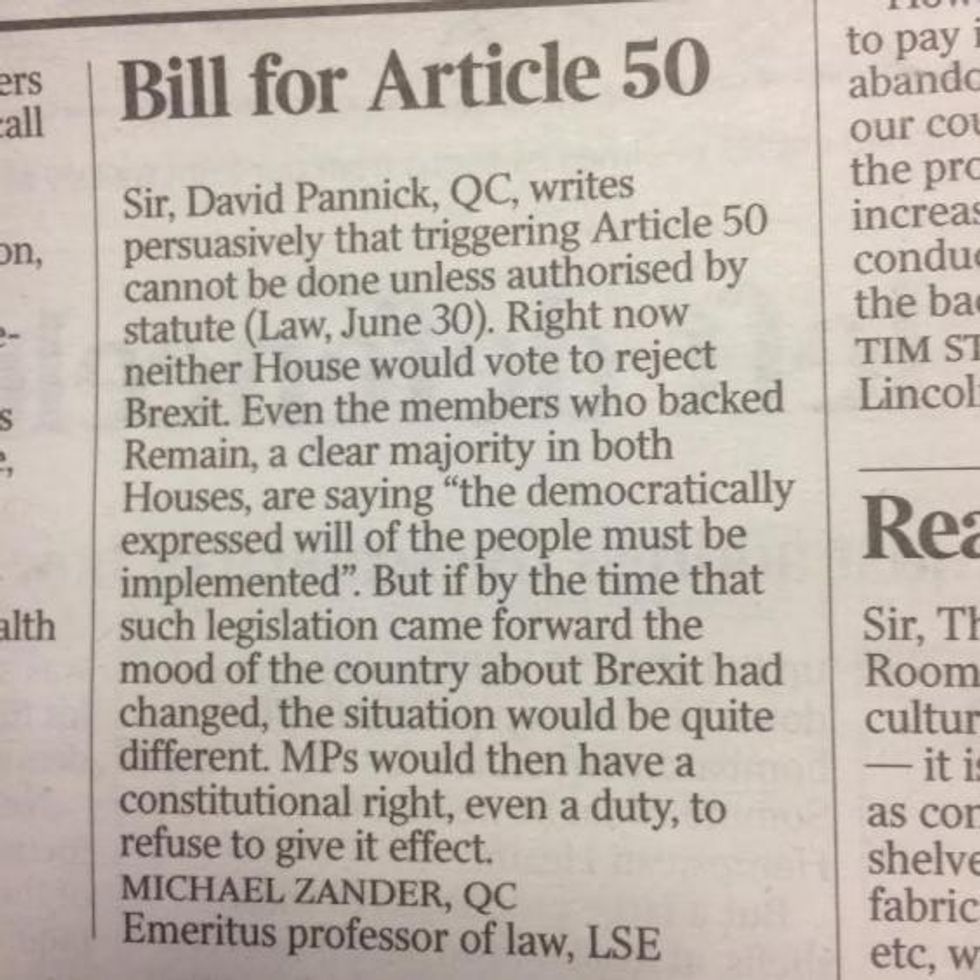News

Prime Minister Theresa May
Getty
The High Court has ruled that Theresa May cannot bypass parliament and trigger Article 50 without a vote from MPs.
That means that, for now, Britain's exit from the European Union is on hold.
Back in July, crossbench peer and legal expert David Pannick QC explained that triggering Article 50 "raises the most challenging questions of constitutional law in modern British legal history".
In response to this, Michael Zander QC, Emeritus professor of the Law at the LSE, wrote in the Times that neither the Lords nor the Commons would willingly vote against a Brexit. But that could change.
With the pound tanking and European politicians making it clear how difficult they want Britain's exit to be, the feeling of Bregrexit across the country is growing.
The Government has been given permission to appeal the decision in the Supreme Court and, in irony of ironies, could even take it to the European Court if it doesn't go its way.
So will Brexit still happen? If the Supreme Court upholds the High Court's decision then it will be down to MPs to decide.
It's then up to MPs whether they want to go against the will of the 52 per cent.
Top 100
The Conversation (0)














